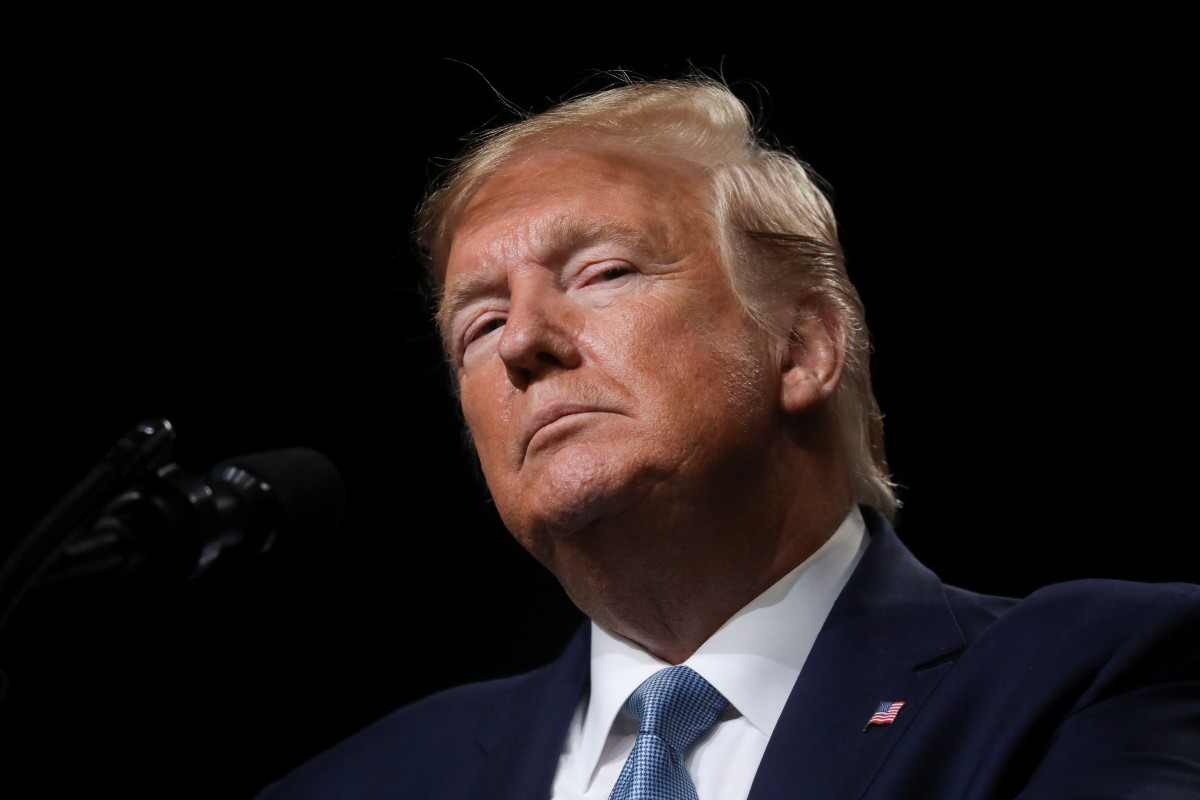NB: Hi all, this link should be moved off the articles list (as I am very clearly an American writer) and off to the side shortly. Thx, hs

The Translator-Editor Collaboration: From ‘Parliament’ to ‘Congress’ and Beyond
() on 28 October 2019
by Helaine Schweitzer (link to original)
Huh?
If you edit translated content, be prepared to navigate a linguistic minefield. The road to adapting foreign text for an English audience is filled with booby-traps from grammar to syntax. Are you working on an unusually complex op-ed about trade wars or impeachment? Expect to encounter idiomatic and colloquial language that does not easily cross the cultural divide. Think you know what the simple word “should” means? Think again. Dealing with how foreigners interpret the president’s English? Good luck. There are challenges at every turn. But you can do it.
Access to foreign content is more important than ever as an increasing amount of information that affects us comes from beyond our borders. If you find yourself face to face with translated material, you can learn how to edit around and through those translation pitfalls.
Oh, and not to worry. The object of that unhealthy description above is alive and set for trial Nov. 5, 2019 on federal charges of lying to Congress and obstructing justice. What the translator of that Italian editorial above meant to say was that political strategist Roger Stone has managed never to lose his composure.
Of course.
Why Translating Foreign Content Matters
In the United States, we tend to ignore what we don’t know and talk among ourselves. By failing to see the world through the eyes of others, we suffer from not knowing what we don’t know about global events that are changing our lives. And if ever a moment in history called for getting the whole picture, this is it.
The only way to find out what you don’t know is to read information about a region, from that region, written by people living in that region, in their language, for people in that region. That content not only gives us the facts on the ground seen up close, but is written by people who are most immediately affected by those facts. Getting the complete story affects the kinds of decisions we make, from voting (2020 presidential election, anyone?) to evaluating our foreign policy, to deciding how and where to sell products, or even to sell them in the first place.
This all takes foreign content. More importantly, it demands translators who can make sure foreign text reads as fluently in the target language as it does at the source. But translation is a team sport, and into each translator’s life an editor must fall. The translator-editor collaboration is key to bridging the gap between what we know in the United States and what we don’t.
Translation Is Just the Beginning, or Localization 101
Translation is merely one step in adapting content from a foreign source for an American English audience. The process of making something local in character is known as “localization” and it is indispensable if you want foreign text to make sense to English readers.
While a leader may “come to power” in one country, he or she “takes office” in the United States. While there may be a “secretary of justice” in another government, Americans refer to that person as the “attorney general.” While a “parliament” may pass laws overseas, “Congress” does that job here in the states. Run into technology that is “humane and applicable?” We’re probably talking about “user friendly.”
An effective editor of translated content must be alert to a list of issues, including, but certainly not limited to:
• Date and time formats (19 May 2019 or May 19, 2019; 14:00 hours or 2:00 p.m?)
• Currency (Euros? Dollars? Yuan?)
• Measurement (kilometers or miles? liters or pounds?)
• Political processes (transition of power, governance, cabinet positions, and elections, which have an American English vocabulary all its own. Did I mention impeachment?)
• Legal process (judicial systems, constitutional law, courts, criminal and civil procedure, judges, prosecutors, trial, indictment and conviction, and so much more)
Now take all that and add another critical component: Preserving foreign content with all its cultural nuances and context while still getting the message across to readers in the plain English they understand. And be sure not to sacrifice original idiomatic or colloquial language, not to mention tone, context and any irony the original author managed to sneak in.
Cultural Pitfalls and the Creative, if Not Cheeky, Ways Around Them
When you edit foreign content, expect to deal with more than just words. An effective editor of translated copy must factor in prevailing cultural, national, political or other norms which may influence the text you are dealing with, whether it is how Russia feels about the latest Trump Ukraine controversy or what a U.S. border wall looks like to observers in Mexico.
On top of that, the same word may have different meanings in different cultural settings. If you live in China, for example, you will discover that the word “should” in Chinese does not have the same connotations of moral obligation that the English word has. In Chinese, it more closely means a practical or political obligation.
One international project that is intimately familiar with the finer points of editing foreign content is Watching America, an online website which enlists more than 200 translators in the U.S. and abroad who find foreign language commentary about the U.S., translate it, and then turn it over to editors who make sure the translated copy reads fluently in American English.
When you deal in foreign opinion as Watching America does, provocative issues are your stock in trade, and that requires particular skill to edit where others may fear to tread. Consider the following dilemma that Watching America and other editors faced last year.
In January 2018, at a meeting with legislators on immigration, Donald Trump reportedly asked, “Why do we want all these people from s---hole countries?” It was said Trump was referring to Haiti, El Salvador and certain African nations. As you can imagine, foreign writers, particularly those from Haiti, El Salvador and those African countries, had an opinion about this, but not necessarily the language to articulate Trump’s epithet of choice.
The main newspapers in El Salvador went with “agujeros de mierda,” which translates into “holes of s---.” Translations of “s---hole countries” ranged from “rubbish states” in Vietnam and “thieving countries” in Greece, to “countries where birds don’t lay eggs” in Taiwan. Alternatively, countries relied on euphemisms to convey what Trump had said.
Imagine then that you are an American editor who wants to know how El Salvador reacted to Trump’s disparaging comments and you are editing a translated version of a Spanish account of the incident. What do you do with the awkward but literal translation? Censor it? Edit it back into the words Trump used? Honor the Spanish view of Trump’s remarks and leave the author’s interpretation intact? Some combination of the above? There is no one answer.
The Washington Post astutely observed that cleaned up versions of Trump’s statement failed to give foreign news consumers, including American readers, the full picture, which can prove problematic. Understanding the president’s words, the Post noted, is after all, essential to readers worldwide, as his words could lead to life-altering policies and decisions that affect people everywhere.
Pro-Tips for Editing Foreign Content
Translators have a challenging job, but they are not editors. Translators can only work with the content in front of them and there is not much room for elaboration. Editors, on the other hand, have more leeway to adjust and rewrite, within limits. Instinct and experience with translated language go a long way, but it helps to keep the following two things in mind.
1. Ask the Translator: Always consult with the translator if you encounter content that cries out for clarification. Translators are the experts when it comes to their language, its idioms and cultural or historical references. You will undoubtedly encounter text that has been translated literally and become entangled in upended syntax and questionable grammar. If that happens, here’s the best plan: Talk to the translator and see if you can find a version in English which respects the original author’s intended meaning, but which also makes sense to the American reader.
2. Read for Context: It is important to read translated content as a whole and get a sense of what the author is trying to say. Look at the sentences before and after any phrasing that gives you pause. Read the entire article, and if necessary, work backward. You may see where an awkward phrase suddenly makes sense with a little tweaking.
There are also a number of online tools which will shed light on a difficult phrase or indecipherable and misplaced word. Check out wordreference.com, an online bilingual dictionary for dozens of languages. It is an excellent source for finding how a word or phrase is used in various contexts and idiomatic applications. Linguee is a similar web service that provides an online dictionary for a number of language pairs. If you happen to be dealing with translated Portuguese content, http://dicionarioinformal.com is a helpful informal dictionary which contains an extensive compendium of phrases and their definitions collected from the public.
It is not difficult to access and edit foreign content. It takes curiosity and serious editing chops to make it happen. Patience, a love for language and culture, and a reliable dictionary are likely to get you past any roadblocks you may encounter. Along with a sense of humor.
Header Photo Provided by Dmitry Ratushny on Unsplash


